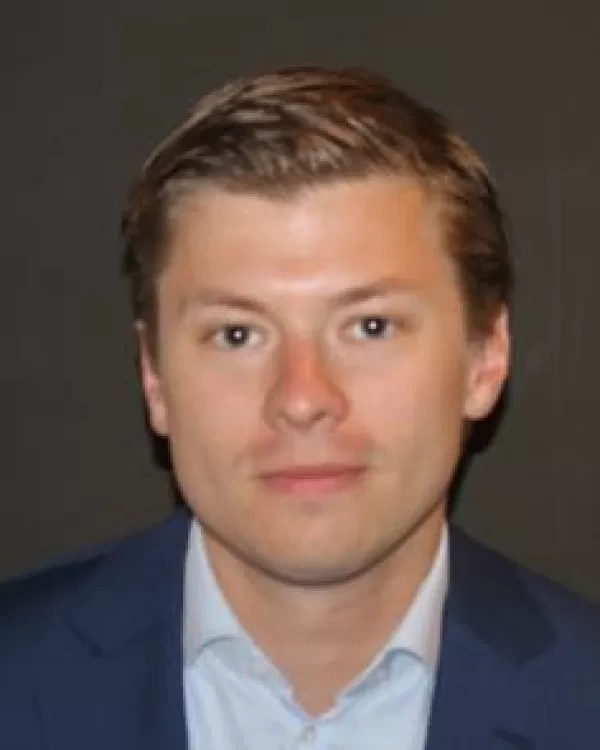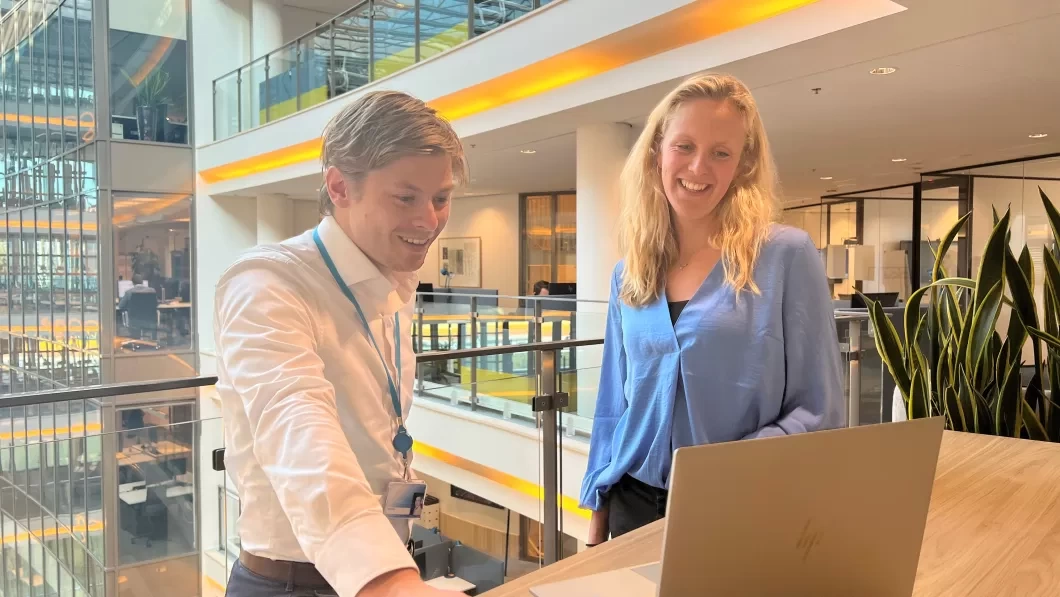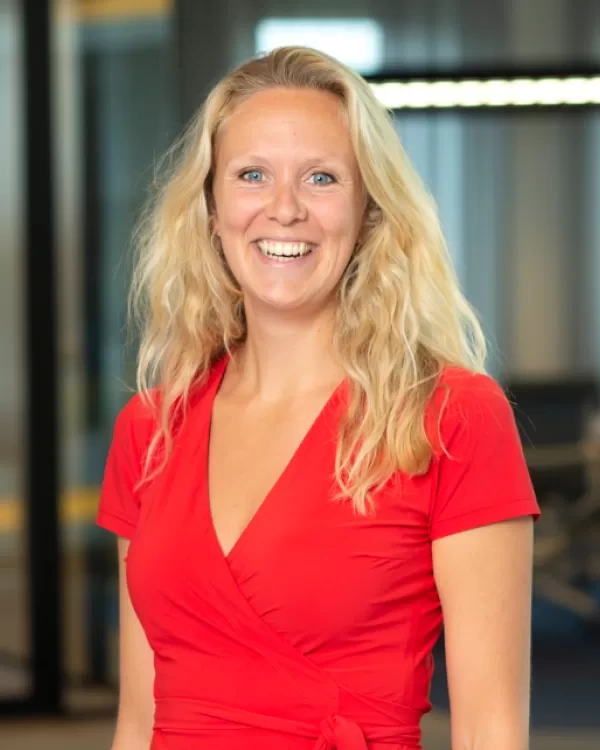Working in Financial Risk Management: 'When legislation changes, banks call us.'
Emmely de Horde and Carlo Beks, both senior consultants, work in the banking team of Financial Risk Management (FRM) at KPMG. They guide banks in various change processes related to risk management. In short, they deal with everything concerning risks for banks.
Banks face different risks, such as credit, liquidity, capital, market, climate, operational risks, as well as ESG (environmental, social, and governance) risks. Consultants from FRM Banking are involved in all these types of risks. Carlo Beks, senior consultant, says: "Our work is broad and diverse. The dynamics between legislation and a significant quantitative component make it interesting. Moreover, the field is evolving rapidly, both in terms of legislation and technology. This means you are constantly working on new things and continuously developing yourself."
Do you want to work in risk & regulatory?
Do you want to help clients with risk management, just like Carlo and Emmely? From advising on cyber risk to implementing legislation, from researching fraud and organizational cultures to quantifying financial risks. A job in risk & regulatory at KPMG might be the right fit for you! Our risk & regulatory team consists of various sub-teams, so you can work in forensic, governance, risk & compliance services, or financial risk management.
Changed legislation leads to new projects
Emmely de Horde, senior consultant, explains: "Client inquiries often arise when legislation changes or when banks no longer comply with the regulations. For example, a new regulation (Basel IV) requires more uniformity in credit risk models used by European banks. Banks need to align their processes, including their models, and ensure the accompanying documentation is in order. These are large-scale projects that take years to implement, and banks have already been preparing for the implementation for a number of years. Given our knowledge of the landscape and our extensive expertise, we can provide valuable support to banks in such projects."
There are also cases where a bank wants to implement changes and requires approval from regulators. In such cases, we assist in preparing the package or request.
Carlo Beks, Senior Consultant FRM Banking
Advisory assignments versus operational assignments
Carlo adds: "We distinguish between advisory and operational assignments. An advisory assignment is usually short-term and often results in a concrete deliverable, such as an advisory report. In an operational assignment, you fully integrate into the client's organization. These projects typically last for several months or even years. In most cases, a translation is required from quantitative analyses to concrete results, which are then used to make financial decisions, among other things. You need to make the information understandable for different layers of the company, so that each layer can work with it. However, you don't necessarily have to be involved in the entire process from start to finish; it depends on the specific knowledge and competencies required at each stage. There is also room to shape the type of assignments you take on and, in turn, shape your own career."
Work brings energy and fulfillment
Carlo and Emmely are passionate about their work in FRM Banking, which is evident in the energy and fulfillment it brings them. Carlo says: "Recently, I completed an assignment for a client where we had to develop a plan within a short period of time to ensure the bank complied with the regulations regarding credit risk models they use. The subject matter was new, and achieving success in such cases is very fulfilling. You are often dealing with new topics, which helps you develop rapidly."
I get a lot of energy from learning new things during a project. I am results-oriented, but that's not the only thing that matters. I also find the human aspect important and enjoyable.
Emmely de Horde, Senior Consultant FRM Banking
"I find joy in seeing everyone putting in their effort and making the impossible possible!" They also appreciate the variety of tasks and the dynamic nature of their work. There is a pleasant dynamic that is reflected in the diverse projects they undertake. Projects may vary in duration, but often involve large-scale change processes at major banks that take a considerable amount of time. In each project, everyone has their role, but they are also aware of the bigger picture. This keeps everyone engaged in the entire project, making each day different.
Emmely adds: "Apart from the projects, our team regularly comes together. We have internal meetings where a lot of knowledge is shared. Colleagues often give short presentations about their projects, so you get an idea of what your colleagues are working on. However, it's not all about work and content. On office days, it's also nice to chat with colleagues over a cup of coffee or have lunch together."




